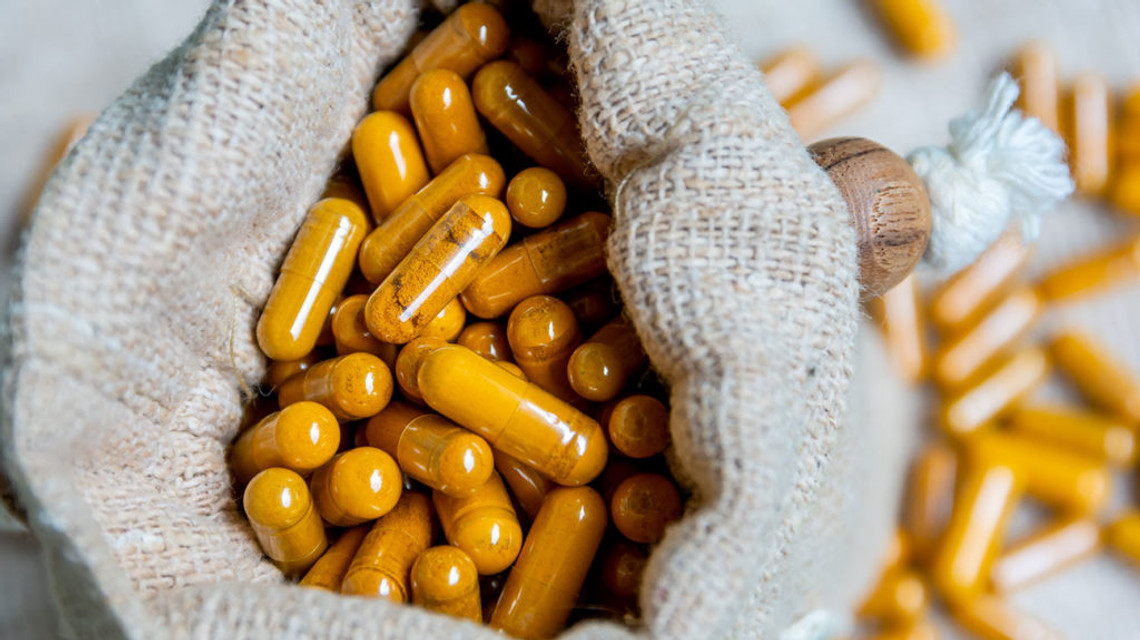Nov 3rd 2025
Curcumin and a Drug-Free Approach to Arthritis
The secret to erasing arthritic pain is reducing inflammation. This is because inflammation does two things: it produces the swelling and sensitivity that causes pain, and it releases chemicals that break down protective cartilage around your joints, which causes even more pain over time.
So if you can reduce inflammation, you can both alleviate pain and disability now AND prevent further deterioration of your joints.
Anti-inflammatory drugs like Advil and Tylenol are generally recommended for this purpose, however every one of them has serious harmful side effects, one of them being long-term destruction of joint cartilage ! As the drugs cause your joints to continue to deteriorate, you will of course need more and more of the drug to manage your pain, and this will cause even more deterioration.
The good news is that it’s possible to live a pain-free life even with advanced osteoarthritis! In fact, patients with no cartilage left to cushion one or more joints have reported no pain. An approach that has worked for many people is to first, work with a physical therapist to learn how to use your body so you’re not overstressing your joints and continuing to injure them. Losing excess weight will help here too. Second, adopt an anti-inflammatory lifestyle, described briefly here, and more fully in Raymond Francis’ book, The Great American Health Hoax . Third, use natural anti-inflammatory supplements to reduce pain without risking dangerous side effects.
We’ve told you about several different anti-inflammatory supplements before . But one of them, curcumin, has been gaining special attention.
Found in the golden Indian spice turmeric, curcumin has been called nature’s most powerful anti-inflammatory. Unlike existing anti-inflammatory drugs, curcumin is extremely safe even at relatively high doses. So it’s not surprising that researchers have been doing more and more clinical trials (studies done on human beings rather than animals or in laboratory test tubes) to test its effectiveness in treating arthritic pain. When compared with common anti-inflammatory drugs, curcumin has been found equally effective. But curcumin achieves these positive outcomes without the drugs’ unwanted side effects.
Most studies on curcumin and osteoarthritis have used 1,000 milligrams (mg) of curcumin a day, often in divided doses. Although up to 10,000 mg per day has been used safely, benefits are often significant at even 250 mg, so very large doses usually aren’t needed.
Since everyone responds differently to supplements, and it can take some time for your body to get used to a new supplement, we always suggest starting with a minimal daily dose (in this case 250 mg) and upping that dose gradually.
However, if you’re taking a prescription blood-thinner, you must work with your doctor if you want to take curcumin supplements, since curcumin itself has blood-thinning properties.
References:
- Francis R. The Hazards of Painkillers (NSAIDS), Reprinted from Beyond Health News, 1999. Available at beyondhealth.com’s Article Archives.
- BH Staff. Common Pain-Killers with Deadly Effects. March 28, 2015. Beyond Health Blog.
- Kuptniratsaiku V. Efficacy and safety of curcuma domestica extracts compared with ibuprofen in patients with knee osteoarthritis: a multicenter study. Clinical Interventions in Aging. March 2014;9:451-458.
- Shep D. Safety and efficacy of curcumin versus diclofenac in knee osteoarthritis: a randomized open-label parallel-arm study. Trials. April 2019;20:214.
- Yang M. Curcumin in autoimmune and rheumatic diseases. Nutrients. May 2019;11:1004.
- BH Staff. A Natural Approach to Alleviating Pain. July 18, 2016. Beyond Health Blog.
 Fuel your life with the purest vitamins
Fuel your life with the purest vitamins
